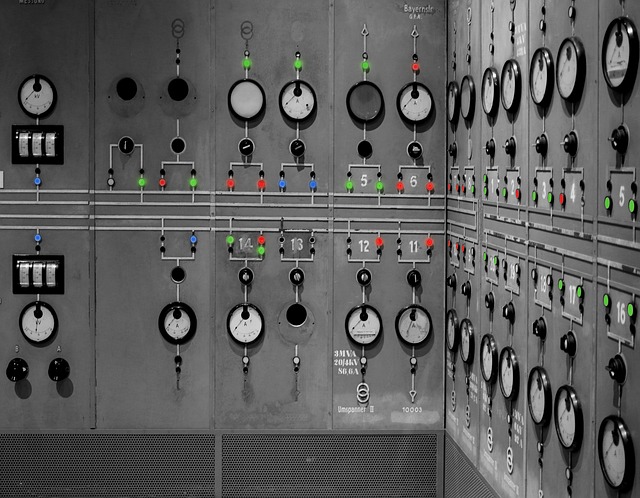Insights on Manufacturing Roles for English Speakers in Hamburg
Individuals residing in Hamburg who are proficient in English may consider the manufacturing sector as a viable field of interest. This sector offers a range of roles that can provide insight into the working conditions and environments typical in manufacturing. Understanding these dynamics can aid in making informed decisions regarding potential involvement in this industry.

Hamburg, Germany’s second-largest city and major port, has established itself as a significant manufacturing hub with opportunities spanning across various industries including aerospace, maritime, renewable energy, and food processing. For English speakers considering career prospects in this vibrant northern German city, understanding the manufacturing landscape presents both challenges and opportunities. This article explores the manufacturing environment in Hamburg, essential skills required, and important workplace considerations for non-German speakers.
Understanding the Manufacturing Environment in Hamburg
Hamburg’s manufacturing sector is characterized by its diversity and technological advancement. The city hosts major manufacturing operations including Airbus’s aircraft assembly facility, Blohm+Voss shipyards, and numerous automotive component manufacturers. The Hamburg metropolitan area employs approximately 120,000 people in manufacturing roles, with sectors ranging from traditional shipbuilding to advanced electronics production.
For English speakers, the industrial environment presents a unique landscape. While German remains the primary language in most manufacturing facilities, many international companies operating in Hamburg have adopted English as a working language, particularly in technical documentation, international teams, and management levels. Companies with significant international operations, such as Airbus, often maintain multilingual work environments where English proficiency is valued alongside German language skills.
The manufacturing sector in Hamburg also benefits from the city’s excellent logistics infrastructure centered around its port—one of Europe’s busiest. This connectivity has attracted numerous international companies that maintain global supply chains, creating environments where international workers can leverage their language skills and global perspective.
Key Skills and Requirements for Manufacturing Roles
Success in Hamburg’s manufacturing sector requires a combination of technical expertise, language capabilities, and cultural adaptability. For technical positions, qualifications in engineering, mechanics, electronics, or specialized manufacturing processes are typically required. Hamburg particularly values vocational training and apprenticeships, with the German dual education system producing highly skilled workers through combined practical and theoretical training.
Language requirements vary significantly by position and company. While entry-level production roles often require basic German communication skills for safety and operational reasons, specialized technical positions and management roles may prioritize technical expertise over perfect German fluency. Many international manufacturers maintain documentation in both German and English, especially for technical specifications and operating procedures.
Digital literacy has become increasingly important as Hamburg’s manufacturing sector embraces Industry 4.0 concepts. Experience with manufacturing execution systems (MES), enterprise resource planning (ERP) software, and automated production equipment has become valuable across all manufacturing disciplines. Companies like Siemens and Jungheinrich, which maintain operations in Hamburg, specifically seek professionals with digital manufacturing competencies.
For non-EU citizens, work permits present an additional consideration. However, Germany’s Skilled Immigration Act has simplified the process for qualified professionals in fields experiencing labor shortages, which includes several manufacturing specialties. Engineers, technicians, and skilled trades workers may qualify for expedited visa processes, particularly when possessing recognized qualifications.
Insights into Working Conditions and Safety Standards
Manufacturing facilities in Hamburg adhere to Germany’s strict workplace safety regulations, which are among the most comprehensive in Europe. The German Social Accident Insurance (DGUV) sets standards that often exceed EU minimum requirements, resulting in manufacturing environments with strong safety cultures. For English speakers, this means comprehensive safety training is provided, often with materials available in multiple languages for critical procedures.
Work schedules in Hamburg’s manufacturing sector typically follow the German standard of approximately 37-40 hours per week, with shift work common in production environments. Collective bargaining agreements negotiated by unions like IG Metall establish industry-wide standards for working hours, overtime compensation, and shift differentials. These agreements provide strong worker protections compared to many other countries.
The physical working environment varies significantly based on the specific manufacturing subsector. Modern facilities, particularly in aerospace and electronics manufacturing, offer climate-controlled, ergonomically designed workspaces. Traditional heavy manufacturing, while modernizing, may still involve more physically demanding conditions. All facilities must comply with German occupational health standards, which address factors ranging from noise exposure to ergonomic considerations.
For English speakers, integration into safety committees and quality improvement initiatives may initially present language challenges. However, many companies offer language support through translated materials and sometimes language courses as part of professional development programs. Safety signage in manufacturing areas typically uses internationally recognized symbols alongside German text, facilitating understanding regardless of language proficiency.
Cultural Integration in Hamburg’s Manufacturing Workplace
Adapting to German workplace culture represents a significant aspect of success for English speakers in Hamburg’s manufacturing sector. German manufacturing environments typically value precision, punctuality, and structured processes. Communication tends to be direct and focused on technical facts rather than relationship-building, which may differ from workplace cultures in English-speaking countries.
Hamburg itself offers advantages for international workers compared to some other German manufacturing centers. As a cosmopolitan port city with centuries of international trade, Hamburg has developed a relatively open attitude toward foreign workers. The city hosts numerous international communities, with English-speaking expatriate networks providing social connections and practical support for newcomers.
Many larger manufacturers in Hamburg offer integration programs for international employees, including language courses, cultural orientation, and mentoring. Companies recognize that building diverse teams brings innovation advantages, particularly in globally competitive industries like aerospace and renewable energy manufacturing.
Career Development and Advancement Opportunities
Professional growth in Hamburg’s manufacturing sector often follows structured pathways that combine experience with continuous education. The German system places high value on certified qualifications and documented expertise. For English speakers, investing in German language skills typically expands advancement opportunities, particularly into supervisory positions that require team leadership and coordination with other departments.
Hamburg’s manufacturing employers generally provide strong professional development support, including specialized technical training, management development programs, and sometimes tuition assistance for further education. The city’s proximity to technical universities and research institutes creates opportunities for manufacturing professionals to engage with cutting-edge developments in their fields.
For those seeking long-term career advancement, understanding the German concept of “Fachkräfte” (skilled specialists) is important. This professional identity combines deep technical knowledge with practical experience and continuous learning. Rather than frequent job changes, German manufacturing careers often reward long-term commitment to developing expertise within an organization or specialized field.
Conclusion
Hamburg offers significant opportunities for English-speaking professionals in its diverse manufacturing sector. While language and cultural adaptation present initial challenges, the city’s international orientation and the increasing globalization of its manufacturing companies create pathways for non-German speakers to build successful careers. By understanding the technical requirements, workplace expectations, and cultural context of Hamburg’s manufacturing environment, English speakers can position themselves effectively in this dynamic industrial center.




